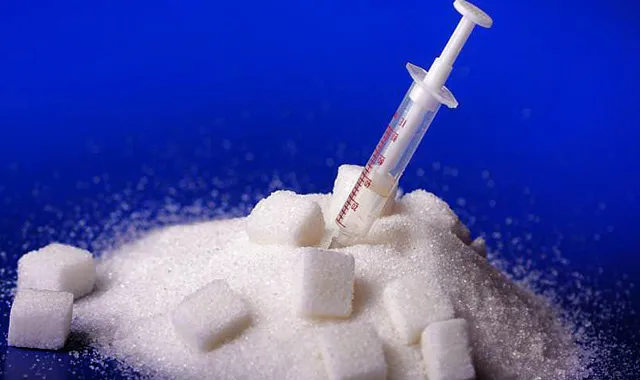From a luxury for the most privileged to an addiction that many do not even consider controlling because they do not have it, sugar is a substance present daily in our lives.
Until recently, its lack of nutritional value and the great millionaire machinery behind it was unknown to promote its consumption but, little by little and thanks to a group of scientists to whom the large pressure groups have failed to buy, the secrets of theSugar have begun to reveal itself.The last one has been a scandal worthy of the title: The Sugar Papers.
A study published on September 12 by the JAMA (Journal of American Medicine Association) revealed that the Sugar Research Foundation, SRF), now known only as Sugar Foundation), sponsored a program ofResearch in the 60s and 70s in the United States aimed at discourageAbout the role of sugar in heart disease.
The document published by the JAMA describes in detail how the SFR authorized and financed the so -called 226 project, a report about the risk factors that affect heart disease.The researchers, D. Mark Hegsted and Robert McGandy, who received the payment, did not reveal the financing and influence of the SRF in their work, and their study was limited to recommending to the Americans, concerned with the increase in deaths from diseases due to diseasesof the heart in the 50s, reduce its cholesterol consumption and exchange that of polyinsaturated fats by saturated fats.
He also describes how the vice president of the SFR, John Hickson, continually interacted with the researchers while doing their work, providing articles, correcting the drafts and reminding them of the fundamental objective of the SFR to finance the study, to which Hegsted would answer: “We understand perfectlyHis interest in carbohydrates (sugar is a high glycemic index carbohydrate) and we will cover it as well as we can. ”
Six tablespoons of tea is the maximum amount of added sugar that we should consume per day.
Obviously and pitifully Hegsted and McGandy were very good doing this work and one of the consequences is the wrong perception we have about sugar as a source of energy.Some even suggest that the obesity crisis faced by the UnitedThey make a low -fat food still appetizing for the palate.
Another consequence of the study is the little government support with which the anti-anti-consumption organizations both nationally and internationally tell.In most countries there are no laws, taxes or warnings that seek to reduce the consumption of sugar such as those that activists have achieved against tobacco and alcohol;And the processed food industry, taking advantage of this situation, does everything to feed our addiction, even continuing to finance studies.
a public health crisis
One of the most recognized sugar activists is Professor Robert Lustig, a researcher at the University of California, who has tried to draw the attention of public opinion since 2009 with his talks on YouTube.Lustig ensures that it is not about the bad habits of the people, lack of exercise or very permissive diets: it is a public health crisis.People cannot be responsible forConsume too much sugar if you don't even know what you are doing.
In the United States, for example, cradle of obesity in America, as a consequence of its peculiar diet high in sugars, around 245 billion dollars a year in diabetes, an excessive and absurd expense especially, especially if we consider that 75% of cases can be prevented.
High glycemic carbohydrates, such as sugar, have stimulating effects on the brain centers of desire, reward, and hunger.
For Lustig, alcohol and tobacco are an excellent example of what should be done with sugar: “We make a conscious decision not to get rid of them, but to limit their consumption, and I think that with sugar you must do exactly whatsame."Some countries have already started.
The Congress and the Senate of Mexico, a country with severe obesity problems, a couple of years ago agreed to impose an 8% tax on highly caloric foods and sugary drinks.In Uruguay, on the other hand, the Ministry of Public Health prohibited tail drinks, snacks and sweets and other "harmful to health" meals of the schools of schools.
resume the Mediterranean diet
In Spain, the population has progressively moved away from the Mediterranean diet, with changes in both food and physical activity and lifestyle, which could lead to negative consequences both in the current and future population.According to the Spanish Nutrition Federation (FEN) "overweight and obesity affect more than half of adults and about 30 % of children and adolescents."
Ham, ham.Despite being recommended only two or three times a week, the advantage offered by the Iberian ham is that it does not need to cook and thus its flesh does not release compounds called nitrosamine, which, apparently, are carcinogens.
Among the responsible factors is excessive intake of energy food.In the particular case of sugar it provides the body of energy without nutrients, as a result we can eat more without feeling satisfied or full.This leads to a greater risk of weight gain, certain diseases, sudden fluctuations of energy levels that leave you more tired and wishing of course ... more sugar!
Nutritional information taken from: Link
The World Health Organization (WHO) reports that in the European continent the largeA 2013 FEN study is within the standard.However, in 2015, WHO recommended limiting sugar consumption to a maximum of 25 gr a day.To put these figures in context we can say that, for example, a regular coca-cool contains 39 gr of sugar.
The bitter truth
Regardless of the opinion of the sugar industry that emphasizes that “since the consumption of caloric foods is essential to survive, it is not surprising that the human brain considers it pleasant”, one thing is undeniable for all: we do not need sugar to live.Luc Tappy, a scientist at the University of Laussane, puts it in this way:
“You can't live without protein.It will be difficult to synthesize enough energy if we do not eat some carbohydrates.But without sugar, no problem, it is a completely inconsequential meal. "
Finally, the consumption of sugar, in addition to being not very efficient at the energy level and of being linked, as we already knew to dental problems, obesity and type II diabetes, and as we know now, to heart disease, it turns out that it can be expendable (or byat least reducible) without this implying guaranteed unhappiness because ourTasting papillae are reprogrammable.
We currently consume so much sugar that our papillae are in a state of overexcitation and do not perceive the natural sugars present in fruits such as pineapple, which most would describe as "bitter."
It is enough to gradually reduce the consumption of sugar and the palate can begin to perceive the natural sweet taste again ... even in the Greek yogurt.Well, maybe not so much, but it definitely seems something worth trying.




